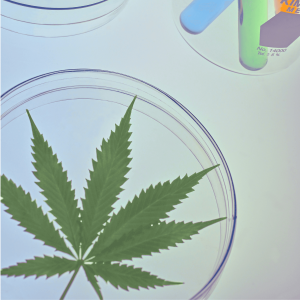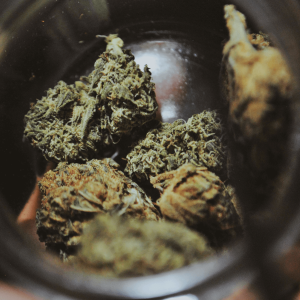THC o, or tetrahydrocannabinol acetate, is making waves in the cannabinoid community as a lesser-known but increasingly popular chemical compound. Unlike its well-known cousin THC, THC-o is a synthetic THC acetate ester that packs a potent punch, often hyped for its stronger psychoactive effects.
The compound is created by chemically modifying THC through a process known as acetylation, which influences how it interacts with the body’s endocannabinoid system. In today’s market, where cannabis products are expanding rapidly, THCo finds its relevance as consumers seek new experiences, federal nationwide legal loopholes, and potential therapeutic avenues.
This blog will dive into the nitty-gritty of THCo and THC o acetate, exploring its chemical structure, potential benefits and risks, the legal landscape surrounding it, and a comparison to other cannabinoids. Whether you’re a seasoned cannabis consumer or just curious, this guide aims to equip you with a comprehensive understanding of this unique compound. Let’s begin!
How THCo is Made
Creating THCo is a combination of science and chemistry, transforming it from its cannabis plant origins into a unique compound.
Step-By-Step Production Process
Step 1: Extraction Process from Cannabis:
The journey starts with the raw hemp plant, specifically the extraction of THC from that plant. This initial step involves separating the active cannabinoids from the plant material, usually through methods like CO2 extraction or solvent-based techniques to obtain a pure THC distillate.
Step 2: Chemical Alteration and Synthesis:
Once the THC is prepared, it undergoes acetylation, a chemical process where an acetyl group is introduced. This alteration is what converts THC into THCo, giving it different properties and a more potent effect profile. The synthesis requires controlled lab environments that can handle the highly flammable substance, acetic anhydride, to ensure precision.
Safety Considerations in Production:
Safety is crucial when producing THCo. Due to the chemical processes involved, it must be manufactured under stringent standards to avoid impurities and contaminants. Only trained professionals in certified laboratories should handle THCo synthesis to ensure a safe and high-quality product.

THCo vs. Other Cannabinoids
The world of cannabinoids is vast and varied, with THCo offering some unique traits compared to its more famous counterparts.
Comparison with THC, CBD, and Delta 8 THC
THC is known for its psychoactive properties; however, THCo is reportedly up to three times more potent, providing a stronger experience. On the other hand, CBD is among the most popular non-psychoactive hemp-derived cannabinoids. It is primarily sought for its potential health benefits. Delta-8, meanwhile, is one of the psychoactive cannabinoids that offers a milder high compared to traditional THC, yet THCo surpasses it all in intensity.
THCo vs. THCp
THCo and THCp are both interesting players in the ever-growing cannabinoid space, but they offer distinctly different experiences.
THCo is known for its intense psychoactive effects, often described as up to three times stronger than typical THC. Meanwhile, THCp, which stands for tetrahydrocannabiphorol, is another powerhouse cannabinoid that has been found to be even more potent than THC itself.
Although both offer a more intense experience compared to traditional THC, their chemical structures differ, leading to unique interactions with the endocannabinoid system. Where THCo is celebrated for its novel synthesis and potential for offering new sensations, THCp is valued for its naturally occurring yet powerful psychoactivity.
Choosing between the two often comes down to preference and the specific effects a person is seeking.
Unique Effects and Properties of THCo
THCo stands out for its longer absorption time, which could lead to prolonged effects, potentially beneficial for therapeutic uses. Its potency also means users might experience a more pronounced alterative state, which is vital to consider for dosage.
Legal Status Differences
While THC’s legality varies by state and CBD is federally legal due to its declassification as one of many controlled substances, THCo occupies a grey area. It benefits from the ambiguous legal definitions due to being a synthetic analogue, but this status can change, influencing accessibility and regulation.

Benefits of THCo
THCo offers a wide array of physical and mental benefits for those exploring its potential uses. Many users report enhanced relaxation and a heightened sense of euphoria, making it a popular choice for stress relief and anxiety management.
Its potent psychoactive effects might provide deep physical relaxation, which can be particularly beneficial for individuals dealing with chronic pain or sleep issues. This cannabinoid’s unique properties also make it a candidate for potential therapeutic applications, such as assisting with mood disorders or enhancing creativity.
While scientific research is still catching up, some users have shared personal testimonials online, praising THCo for aiding in pain management and offering a more focused and uplifting experience compared to other cannabinoids. These firsthand accounts, while anecdotal, provide intriguing insights into what might be possible with further exploration and study of THCo.
Potential Risks and Side Effects
While THCo offers promising benefits, it’s important to understand the potential risks and side effects it may involve. Users should be aware that its strong psychoactive effects can lead to dizziness, paranoia, or heightened anxiety, especially in higher doses.
Long-term use concerns haven’t been fully studied yet, but similar to other potent cannabinoids, there’s a possibility of developing tolerance or dependence over time.
Precautions are necessary, particularly for those with underlying health conditions or who are new to cannabinoids. Consulting with a healthcare professional before use is advised to avoid contraindications and ensure that THCo can be used safely and effectively without adverse reactions.
Legal Landscape of THCo
Understanding the legal status of THCo is a bit like trying to hit a constantly moving target. Right now, THCo falls into a legal gray area in various regions. In the United States, while THC is federally illegal, THCo remains somewhat ambiguous because it’s a synthetic analogue and not directly mentioned in many statutes.
Some states might regulate it more strictly, considering it a controlled substance due to its potency, while others have yet to explicitly address it in their marijuana laws.
Looking ahead, potential regulatory changes are crucial to watch. As awareness grows, lawmakers might create clearer guidelines, which could either restrict or legitimize THCo more widely. Such changes might impact its accessibility, production standards, and the broader perception of synthetic cannabinoids.
This evolving legal landscape could reflect broader trends in cannabis policy, where THCo plays a role in shaping discussions around legalization, safety regulations, and the potential therapeutic applications of psychoactive substances.

Using THCo Safely
When it comes to using THCo, safety is the name of the game, especially given its high potency.
First-time users are generally advised to start with a low dose—small vape puffs or minimal edible portions are a good choice. It’s important to wait, as THCo can take longer to kick in compared to other cannabinoids, leading some to mistakenly consume more than intended.
For those just starting out, best practices include:
- Start low and go slow: Allow time to assess how your body reacts to THCo before increasing the dose.
- Have companionship: Especially for new users, having someone around can be comforting in case of any adverse reactions.
In terms of ensuring product quality and authenticity, it’s best to purchase from trusted suppliers. Look for products that have undergone third-party testing to ensure they meet high safety and purity standards, free from contaminants or harmful substances. Check for clear labeling on the source, extraction process, and THC content.
Also, consider consulting with healthcare professionals to tailor your THCo experience to your specific needs and conditions, ensuring that it’s both safe and effective for your personal use.
Future of THCo in the Cannabis Industry
As we look ahead, the future of THCo in the cannabis industry seems poised for significant evolution and growth.
As more consumers seek novel experiences and therapeutic benefits outside traditional cannabinoids, THCo is likely to find its niche market, with analysts predicting a surge in demand. This cannabinoid’s unique properties could drive new product innovations, including specialized edibles, more refined vaporization methods, and targeted therapeutic formulations.
Additionally, the rising interest in synthetic cannabinoids may spur further research and development, leading to even more advanced consumption methods and precise dosing technologies. The broader cannabis industry is set to benefit from these innovations, as THCo continues to challenge existing paradigms and foster debate around cannabis policy, safety, and potential health advantages.
As regulatory landscapes adapt, the mainstream acceptance of THCo might pave the way for greater integration into wellness and healthcare markets. This evolving environment indicates an exciting horizon for THCo consumers and the cannabis community as a whole, as it may drive new trends and contribute significantly to the sector’s growth.
 THC-O: Frequently Asked Questions
THC-O: Frequently Asked Questions
1. What does a THC-O high feel like?
A THC-O high is often described as being more intense and psychedelic than what you might experience with regular THC. Users report a more profound sense of euphoria and relaxation, but it’s important to start with a low dose to acclimate to its strong effects.
2. Is THC-O banned in the US?
So, is THC o legal in the US? Well, the legal status of THC-O in the US is quite hazy. As it stands, THC-O occupies a gray area because it’s a THC analog, or a synthetic cannabinoid. Some states may classify it as a controlled substance due to its potency, while others have yet to address it in any specific laws, including the 2018 bill known as the Farm Bill. It’s best to check local regulations to ensure compliance with state laws.
3. Is THC-O the same as delta-9?
No, THC-O and delta-9 THC are not the same. While both are cannabinoids, THC-O is a synthetic analog of THC, believed to be more potent and offering different effects. Delta-9 is the natural form of THC found in cannabis, which is responsible for the “high” most people associate with marijuana.
4. What is THC-O vs Delta 10?
THC-O and Delta 10 are both cannabinoids but differ significantly. THC-O is a synthetic compound known for its powerful psychoactive effects, while Delta 10 is a relatively new cannabinoid that is naturally occurring, offering milder effects compared to traditional THC. Their distinct characteristics lead to varied experiences and uses.

 Rewards
Rewards




